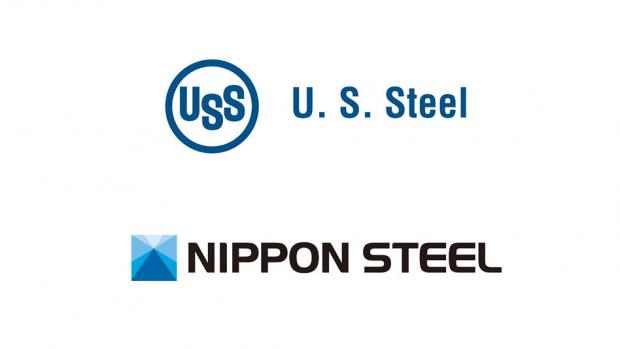
Breaking News
 Top 10 JUNK SCIENCE FOOD STUFF and chemical ingredients that should be BANNED...
Top 10 JUNK SCIENCE FOOD STUFF and chemical ingredients that should be BANNED...
 Calling it a 'Necessary First Step to Stop Weaponization of the Federal Government,'...
Calling it a 'Necessary First Step to Stop Weaponization of the Federal Government,'...
 American Culture Has Fallen Into COMPLETE DEGENERACY, Adult Material Has Been...
American Culture Has Fallen Into COMPLETE DEGENERACY, Adult Material Has Been...
 AMERICA IN CRISIS! Democrats Officially Announce Plan To Block President Trump From Taking...
AMERICA IN CRISIS! Democrats Officially Announce Plan To Block President Trump From Taking...
Top Tech News
 7 Electric Aircraft That Will Shape the Future of Flying
7 Electric Aircraft That Will Shape the Future of Flying
 Virginia's fusion power plant: A step toward infinite energy
Virginia's fusion power plant: A step toward infinite energy
 Help us take the next step: Invest in Our Vision for a Sustainable, Right-to-Repair Future
Help us take the next step: Invest in Our Vision for a Sustainable, Right-to-Repair Future
 Watch: Jetson founder tests the air for future eVTOL racing
Watch: Jetson founder tests the air for future eVTOL racing
 "I am Exposing the Whole Damn Thing!" (MIND BLOWING!!!!) | Randall Carlson
"I am Exposing the Whole Damn Thing!" (MIND BLOWING!!!!) | Randall Carlson
 Researchers reveal how humans could regenerate lost body parts
Researchers reveal how humans could regenerate lost body parts
 Antimatter Propulsion Is Still Far Away, But It Could Change Everything
Antimatter Propulsion Is Still Far Away, But It Could Change Everything
 Meet Rudolph Diesel, inventor of the diesel engine
Meet Rudolph Diesel, inventor of the diesel engine
 China Looks To Build The Largest Human-Made Object In Space
China Looks To Build The Largest Human-Made Object In Space
 Ferries, Planes Line up to Purchase 'Solar Diesel' a Cutting-Edge Low-Carbon Fuel...
Ferries, Planes Line up to Purchase 'Solar Diesel' a Cutting-Edge Low-Carbon Fuel...
Nippon Steel-U.S. Steel Merger Poses No National Security Threat

The Committee on Foreign Investment in the United States (CFIUS) was unable to reach a consensus on Japan's Nippon Steel's $15 billion acquisition of U.S. Steel. The very committee that is responsible for safeguarding the U.S. from compromising foreign investments doesn't recommend blocking the merger, and neither should President Joe Biden.
CFIUS is an interagency committee chaired by the secretary of the Treasury, whose membership comprises the heads of the Department of Homeland Security, Department of Defense, Department of State, Department of Justice, Department of Energy, Department of Commerce, as well as the Office of Science & Technology Policy and the Office of the U.S. Trade Representative. The heads of each of these federal agencies were nominated to their positions by Biden, are aware of his public opposition to the merger, and still cannot unanimously support the president's position on the matter.
CFIUS's inability to recommend blocking the merger on national security grounds is not surprising: Japan is not an enemy of the U.S., but a close ally. The U.S. has been formally allied with Japan since the signing of the U.S.-Japan Security Treaty in 1951. In April, Biden and former Japanese Prime Minister Fumio Kishida issued a joint statement celebrating "a new era" of bilateral security cooperation and announcing "several new strategic initiatives to strengthen our defense and security cooperation [and] bolster economic security."
A section of the joint statement details the two countries' commitment to economic cooperation under the U.S.-Japan Competitiveness and Resilience (CoRe) Partnership, which the Biden administration announced in April 2021 to advance cooperation "on sensitive supply chains…and on the promotion and protection of critical technologies." The statement also celebrates mutual investment, pointing to Microsoft's $2.9 billion investment in AI and cloud infrastructure in Japan and Toyota's $8 billion battery production investment in North Carolina—a mere 1 percent of Japan's $800 billion in foreign direct investment in the U.S.
If mutual investment in critical industries like semiconductors and batteries doesn't compromise national security, the burden of proof is on those opposing Japanese investment in American steel production to explain why it does. CFIUS could not meet this burden and refrained from issuing a recommendation accordingly. If anything, Nippon's acquisition of U.S. Steel, and its multi-billion-dollar investments in the company, will bolster national security by increasing domestic steel production, argues Veronique de Rugy, senior research fellow at the Mercatus Center, in an article for Reason.
Despite close military ties between the U.S. and Japan, as well as their strong economic relationship, Biden has officially opposed Nippon Steel's acquisition of U.S. Steel. One month before the joint statement, Biden released an official statement in which he stated that "it is vital for [U.S. Steel] to remain an American steel company that is domestically owned and operated." David McCall, the president of United Steelworkers—the largest industrial union in North America—reiterated that U.S. Steel should remain domestically owned and operated in a statement on Monday, according to the Associated Press.



